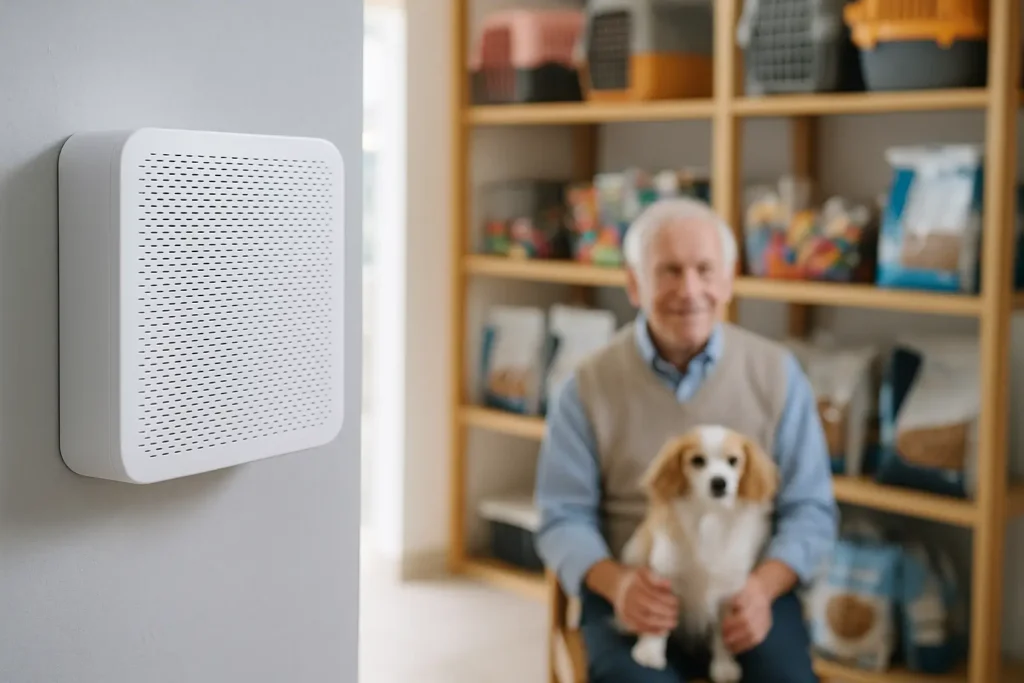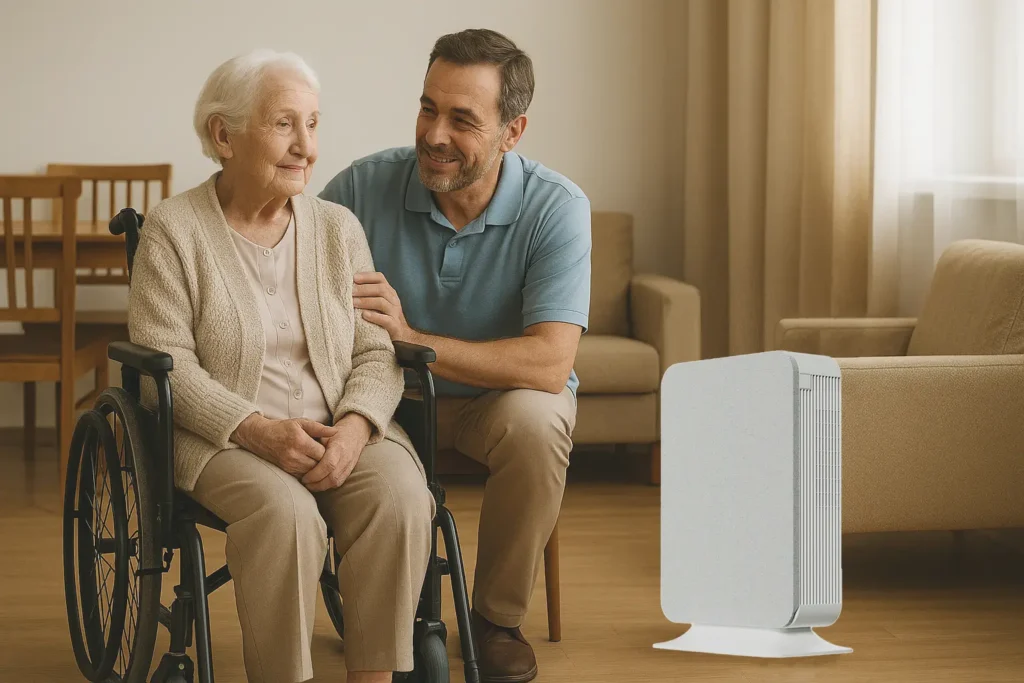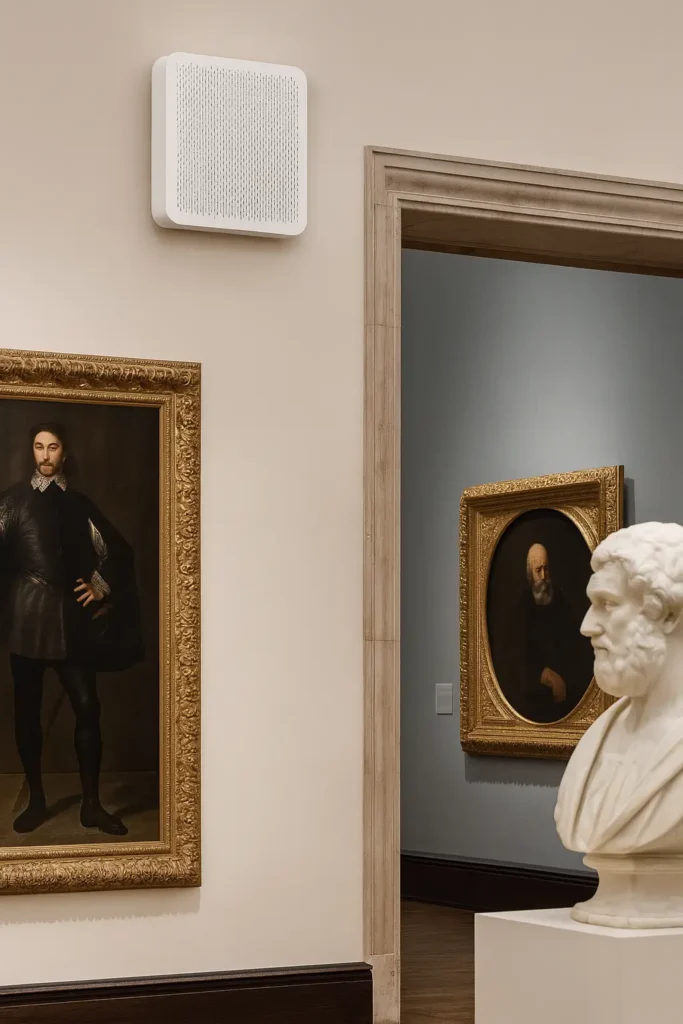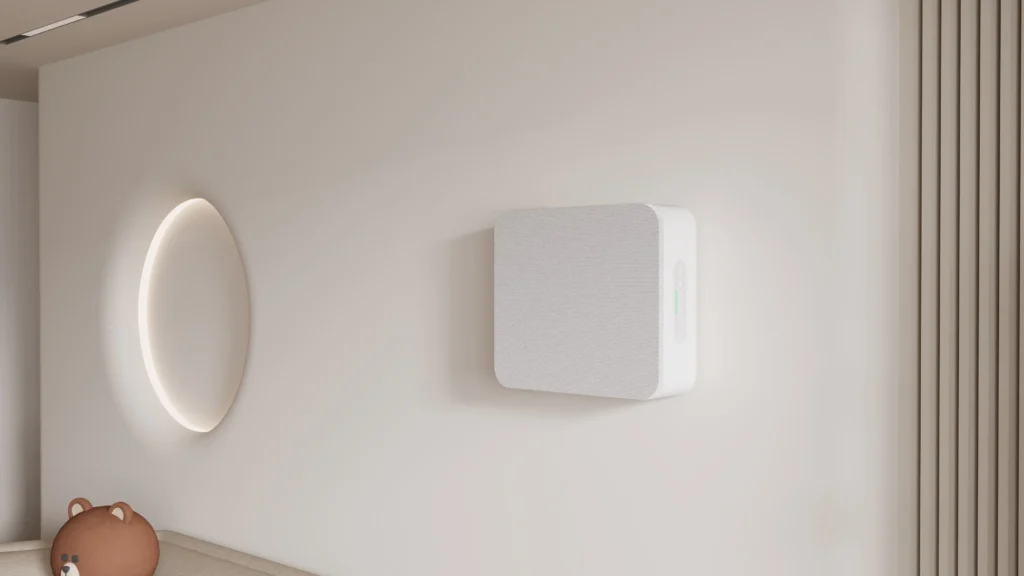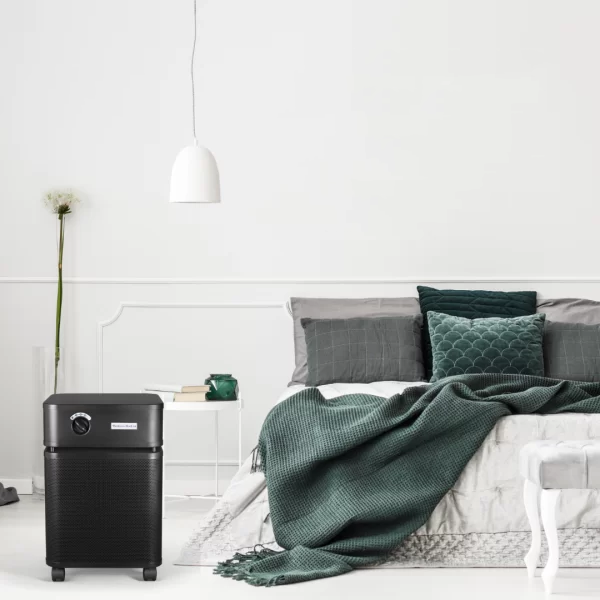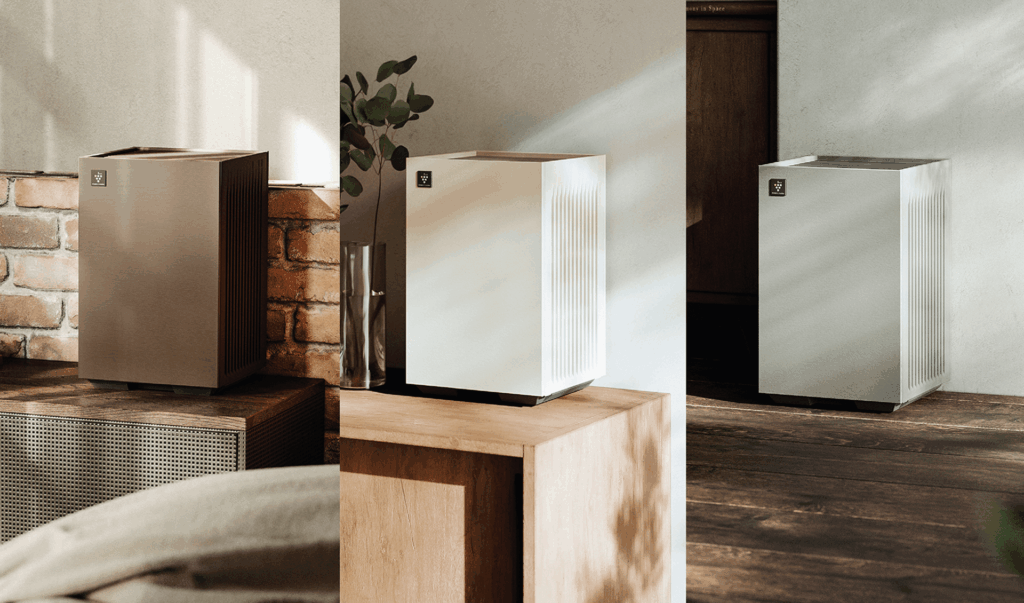An air disinfection machine is what you probably need when you own a restaurant, business or in the healthcare industry. How does an air sterilizer protect you from Covid-19 and promote safer indoor air? There’s more to it than meets the eye, so keep on reading!
Experts say that the Covid-19 can spread mainly from person to person. But can it also be through airborne transmission?
The answer is Yes. Mounting evidence somewhat regards the virus can survive in the air for up to 3 hours. If a person inhales it, it can get into his lungs and he’ll also get infected.
Moreover, we know how infected droplets and aerosols from coughs, conversations and sneezes can contribute to spreading the disease. Aerosols can transport the virus from the air to your nose or mouth.
How Does Air Disinfection Machine Help in a Pandemic?
While experts are also divided on how it really spreads through the air, we do know that cleaning indoor air means a lot to protect people from airborne transmission.
In addition, SARS-CoV-2 can spread rapidly, causing major impacts on public places and medical settings.
Hence, it is practical to get a UV air disinfection system or air disinfection machine to purify the infected air before it gets to people. These specialized air purifiers, when used appropriately, can help protect your clients, customers and family from infection which can happen indoors.
The FDA also believes UV air purifiers can help in infection control and community mitigation for public health and safety.
What is a Smart Air Disinfection Machine?
An air disinfection machine is equipped with several features which make it possible to both trap allergens present in the air and disinfect it. By air disinfection, we mean eliminating pathogenic microorganisms that cause illness and lung irritation to people.
Some specialized air disinfection machines, such as an air sterilizer machine, can even kill sporadic contaminants or bacteria.
Other names associated or has the same purpose as air disinfection machines are:
- UV Air Sanitizer machine
- UV Air Purifier
- Negative Ion Air Purifier
- Medical Grade Air Purifier
- Fresh Air Machine
- Ozone Generator Air Purifier
- HEPA Filter Air Cleaner
- And many more
How Does an Air Disinfection Machine Work?
An air disinfection machine works by trapping 99.97% viruses and dirt from the polluted air and using a short-wavelength UV-C light (ultraviolet light) to kill pathogens. The Ultraviolet Light shining through a H13 HEPA filter destroys microorganisms by disrupting its cellular functions. Hence, air comes out purified and breathable.
Components of an Indoor Air Disinfection Machine
UV disinfection of air involves a variety of filters and components in an air disinfection machine. To be specific, air sterilizers have several special filters compared to a portable air purifier.
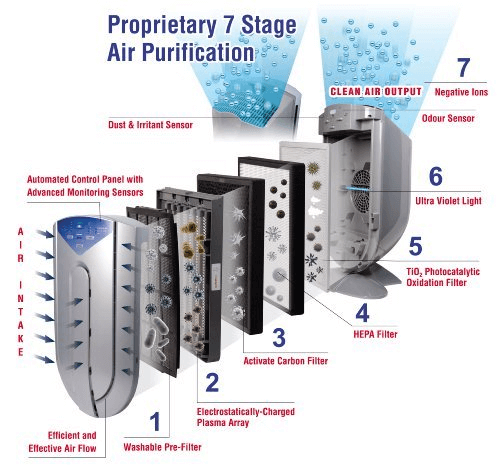
1. Pre-filter
This filter is the ‘front-liner’ of the air disinfection machine which captures large particles so most of it won’t go unto the secondary filter. It can be disposable or a washable filter component. Large particles such as animal hair, dust, and pollen are examples.
2. Plasma Filter
The Plasma Filter is a high performance filter used in hospitals and healthcare facilities for capturing the pathogens and purifying air.
3. Activated Carbon Filter
The activated carbon filter is an absorbent layer which captures foul odors, smogs, volatile organic compounds (VOC), chemicals and smoke. It can also remove chemicals in the air that causes health issues, such as formaldehyde, toluene and acetone.
4. H13 Medical-Grade HEPA Filter
The H13 HEPA filter can block 99.95% of Maximum Penetration Size Particles (MPPS) ideally used in the healthcare settings. This filter can trap 0.21 microns of viruses and bacteria and is designed to be much more effective than standard HEPA.
5. Photocatalyst Filter
The photocatalyst filter is designed with a titanium apatite that is able to destroy organic contaminants and organic matter. More so, PCO photocatalyst filter is effective against the destruction of Coronavirus caught in an air purifier.
6. UVC Lamp
A HEPA filter coupled with a UVC lamp can virtually trap and destroy the Coronavirus and other types of bacteria and viruses in the air. The UVC LED lamp is effective in incapacitating the microbial activities of these viruses and completely removes them from the air.
7. Negative Ions
Negative ions are released into the air to clean it. Negative ion air disinfection machines are often confused with ozone generators for air disinfection. The latter emits ozone that’s bad for the health, while negative ion purifiers just charge the particles through electrostatic attraction. The particles will then get attracted and fall on conductor plates within the air cleaner.
Where to Use Air Disinfection Machines
- Added Worker Protection Aside from PPE
- Client and Customer Exposure Protection
- Protection for Healthcare Workers & Patients
- Protection from Industry Smoke, Fumes and Chemicals
- Protection from Excessive Pet Danders
What Features Should You Look at?
When choosing an air sanitizing machine, you may want to look for some of these features as well:
- Power Usage
- Noise level
- Warranty
- Manufacturer Reputation
- Labeling
Power Consumption
Because Air sterilizers are meant to run 24/7, they should consume less energy in order to minimize its effect on electrical bills. Most Home UV Air Sterilizers are rated from 40 to 200 watts. Moreover, find a machine that has an Energy Star rating. This indicates the energy efficiency of the machine, as compared to other models of the same size.
You can save more by running your machines at lower speeds whenever you're leaving the house. For large facilities, you can look for smart air disinfection machines that automatically regulate speed according to the quality of the air being filtered.
Noise Level (Decibels)
On the side of convenience, you should know more about the air sterilizer’s noise level. Most air sterilizers are advertised to run quietly, but test its noise level as you increase the fan speed as the sound level increases as well.
A typical air sterilizer has up to 5 fan modes (Silent, Low, Medium, High, Turbo), which can be adjusted automatically or manually. Once you run it in auto mode, the fan regulates itself according to the air quality.
An air sterilizer’s noise level is close to a fridge’s hum, which is around 20 to 60 decibels. If the sound is still bothering you, choose an air sanitizer machine that has an option for “Silent Mode” or “Night Mode.” Also, instead of using purifiers with mechanical filters, you can choose negative ion air purifiers, which do not use fans, thus running more silently.
To prevent your air purifier from running noisy all the time, make sure you choose the air purifier sized correctly for your room. If sized inadequately, you might be running your machine in Turbo Mode more often. If noise is a very large concern, choose an air sterilization machine that is correctly sized, or even larger capacity than what your space requires.
Warranty
Look at the warranty before you make a purchase. You can talk to sales and customer service representatives for in-depth explanation on the warranty of your machine and its parts. This is to make sure that in case your machine might have malfunctions, replacement, repair or refund will not be troublesome.
Manufacturer
There are many brands which are medical-grade air purifiers, which have good reputation in the market. Here are some, but they are not limited to this list:
- IQAir
- Rabbit Air
- Blueair
- GermGuardian
- Levoit
- HisoAir
- etc
These are some of the best options in the market right now. These companies have been running in the industry for many years. Moreover, not just the company, but you should also have a better look at the models to make sure it suits your home.
For OEM/ODM, they can also be a reputable source of machines, just ensure that these manufacturers present HEPA test reports and verification certificates.
You would want to get in touch with the manufacturer if you want to purchase from an air purifier manufacturer in China. You can request for their test reports, product compliance, and even photos and videos of the product in operation as well as their factory.
Labeling
The FDA recommends that air purifiers should include labeling to help customers understand the machine’s usage, especially during the Coronavirus pandemic. They recommend a clear description of the device’s performance, namely its maximum area of operation, operational life.
Moreover, FDA also recommends a clear warning for risks and hazards, such as UV exposure for UV air sterilizers. Also, a complete procedure should also be available to customers in terms of operation.
Wrapping Up
When used properly, air disinfection machines can prevent airborne contaminants from populating your home, business or hospital. Do note that by itself, air cleaners are not enough to shield people from the Covid-19. When using air disinfection machines with proper distancing, proper handwashing and disinfection, it can better provide protection for everyone.
If you’re looking for top-notch air disinfection machines, HisoAir got you covered. We manufacture several types of air sterilization uv light filtration systems and technologies to ensure your facility is protected from Covid-19.


